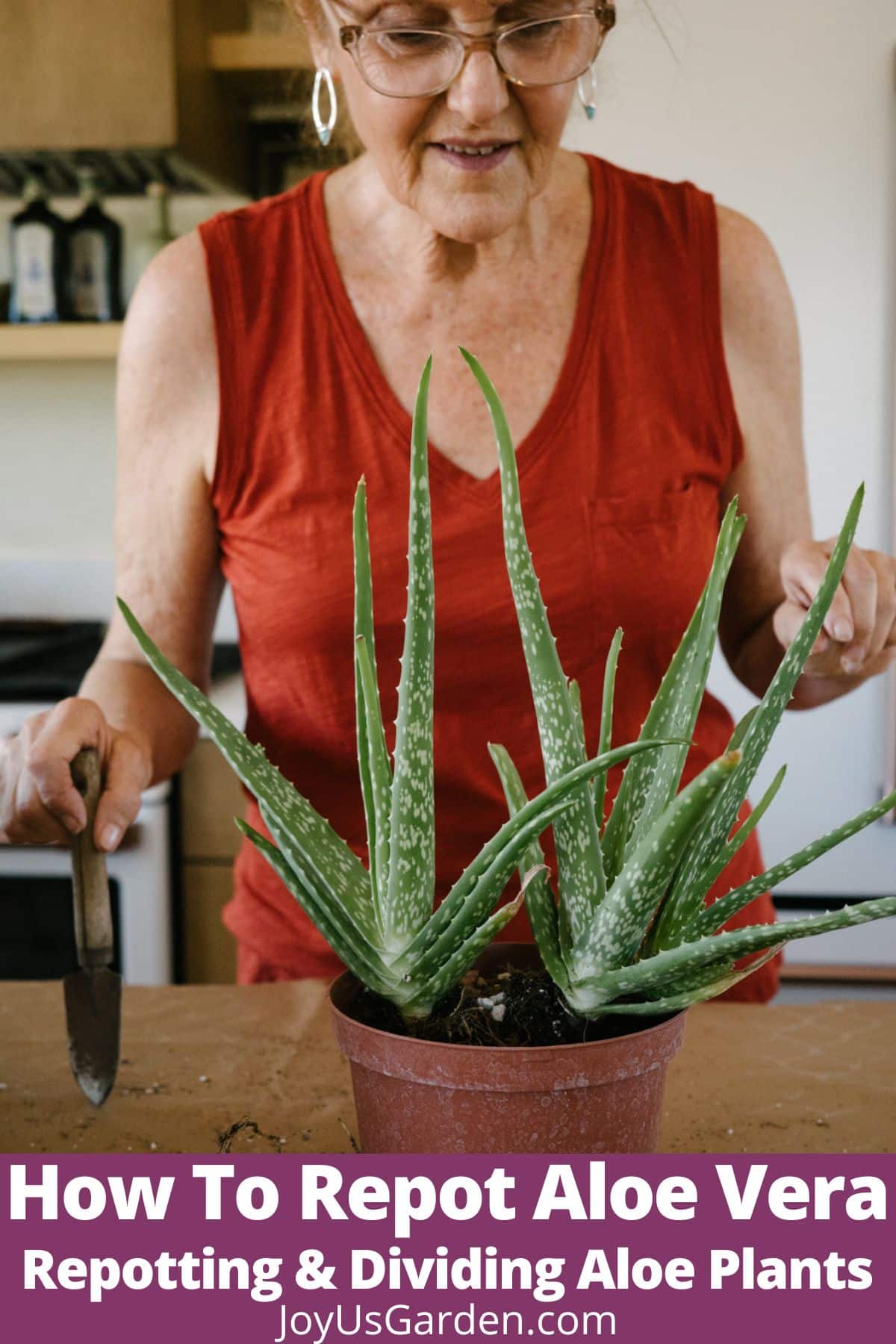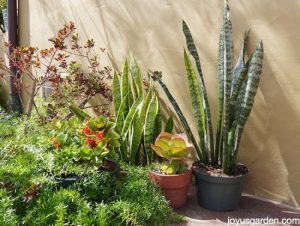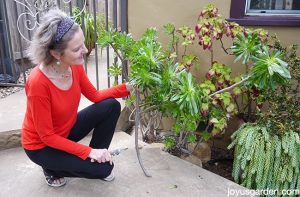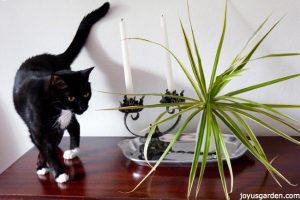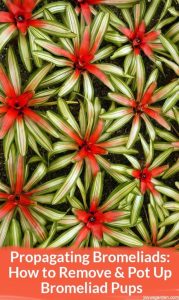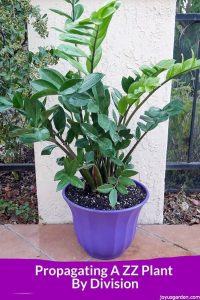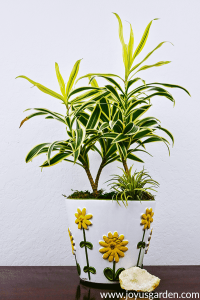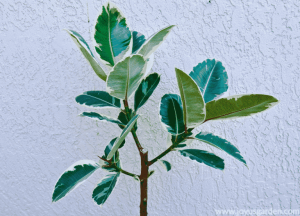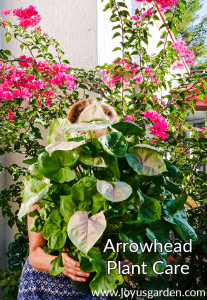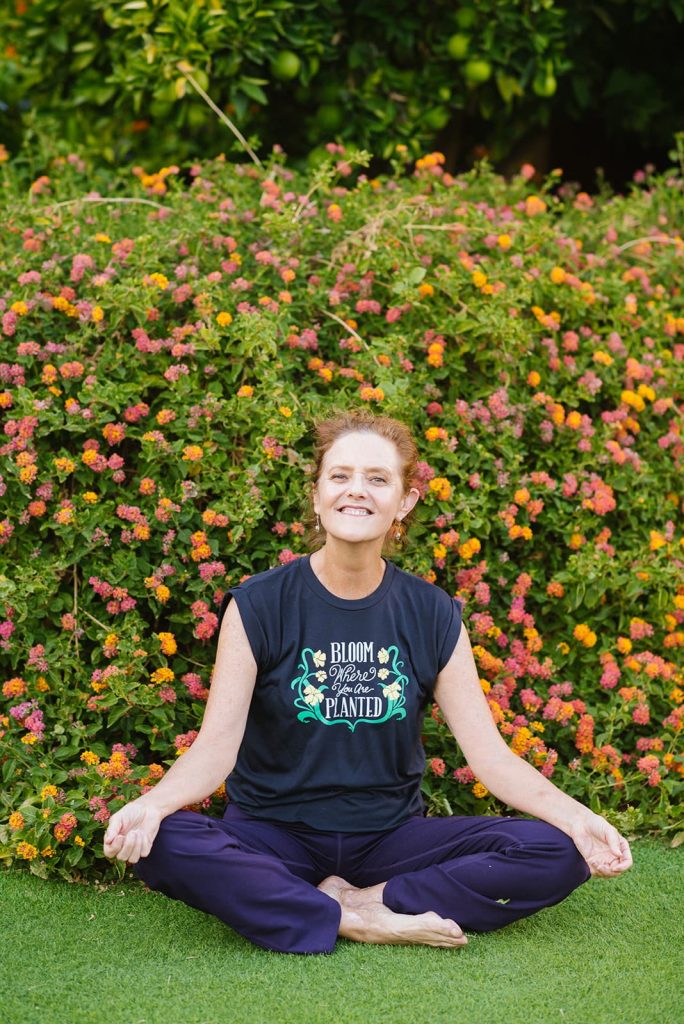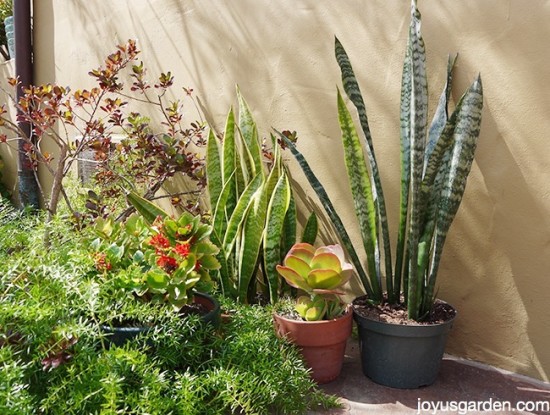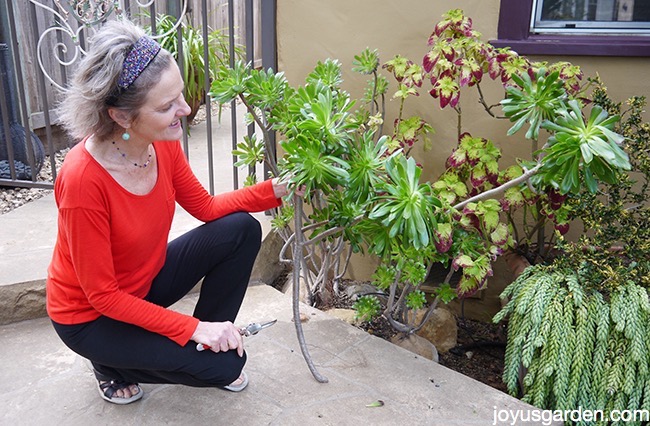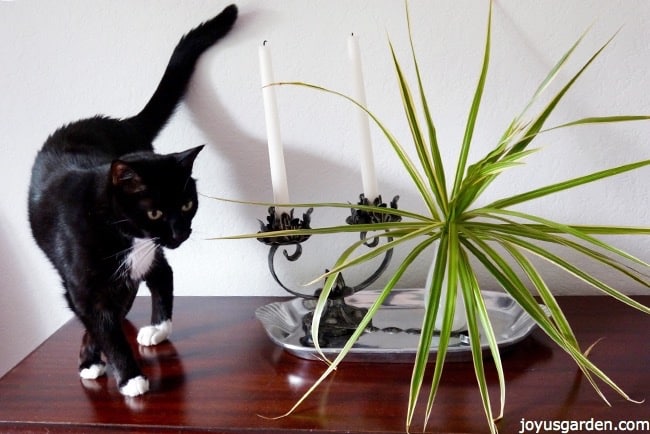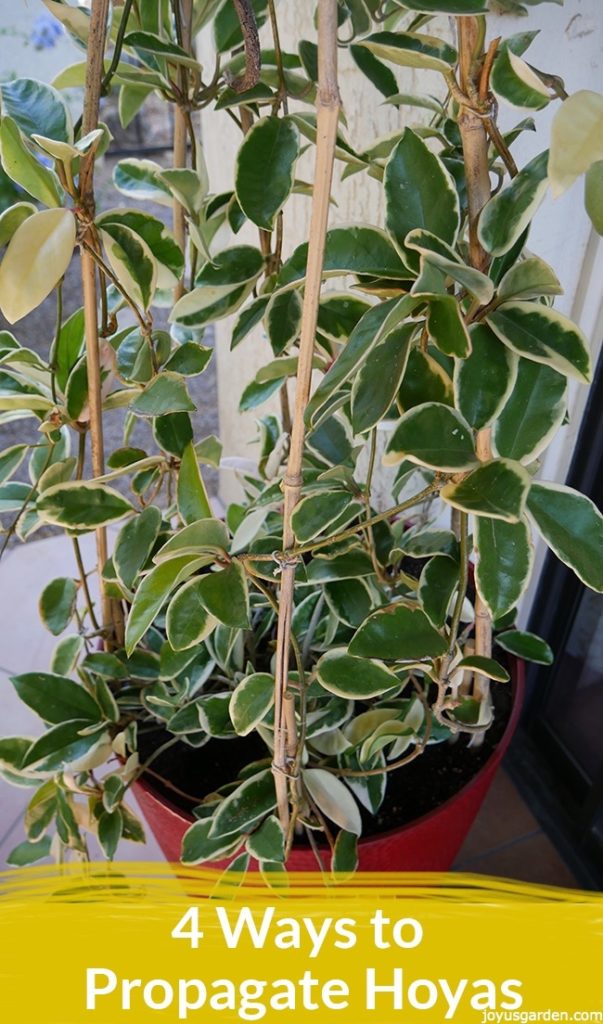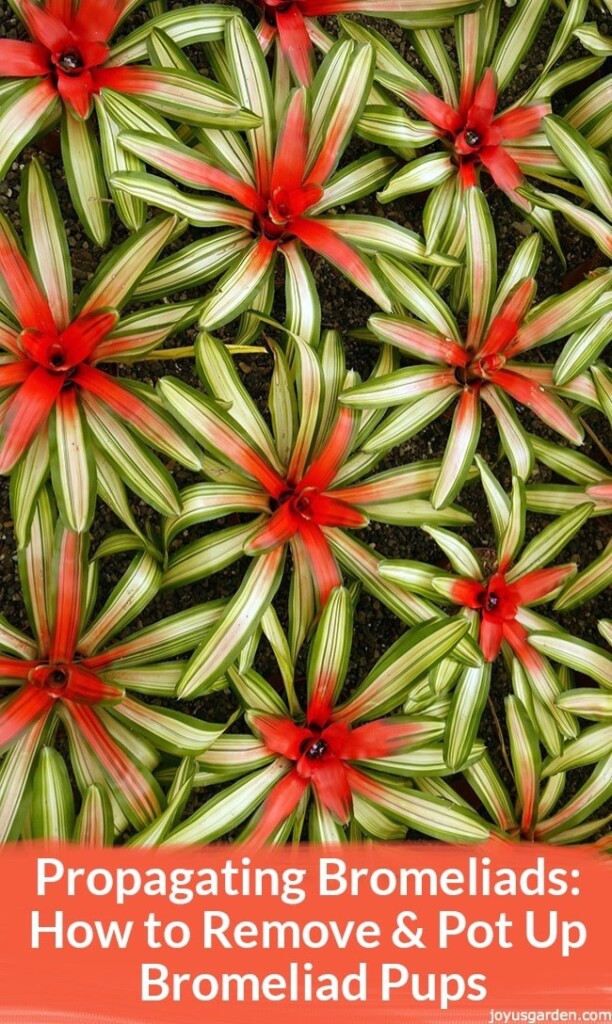Aloe Vera plants, can you have too many? I guess not. I have a huge aloe plant growing in my garden, but I needed a small one for photos as a houseplant. This details how to repot Aloe Vera, including how to separate it, the steps to take, the soil mix to use, and the aftercare.
A ginormous Aloe vera plant grows in a pot next to my patio and stands 4′ tall x 5′ wide. It’s not a good size for the house! It’s in dire need of repotting, but that will be documented in another post and video soon.
MY LATEST VIDEOS
The aloe being repotted here is much more suited for growing indoors. It was growing in a 4″ pot, and because roots appeared out of the drain holes, I wanted to put it into a 6″ pot. Plus, I get to show you how I do it!
Table of Contents
A Guide On How To Repot Aloe Vera Plants
When To Repot An Aloe Vera
During the growing season, spring and summer are the best times. Early fall is fine if you’re in a temperate climate like me in Tucson, AZ.
Aloes don’t mind being potbound, so there is no need to repot yours unless it’s showing signs of stress or outgrowing the pot. At some point, your plant will appreciate a fresh soil mix.
Mine growing outdoors has produced so many aloe pups that the plant is busting out of the pot, so the time has come, and I’ll be doing it in a few weeks when the weather cools.
Pot Size For Aloe Vera Plants
The size of the pot depends on how big the mother plant is and if you’re going to divide it or not. A new container will eventually needed because this plant grows and spreads by putting out baby plants, called pups or offsets.
Aloe vera pups (the baby plants) can go into a small pot. Mature plants like my Aloe beast growing outdoors need a bigger pot. The plant is so heavy due to its size it needs a more substantial base.
My Aloe outside is now 4′ tall by 5′ wide. Those growing indoors stay smaller!
I bought the plant you see here in a 4″ pot. I’m going up one size to a 6″ pot. If you had a sizeable plant in a 6″ pot, you could put it into a 10″ pot.
Does Aloe vera like shallow or deep pots? I thought this was a good question. Because they spread, I’d say a more shallow, wider pot is better.
Aloe vera doesn’t have deep roots, but they get thick and intertwined as the babies grow and spread. Just don’t put it in too big or too deep of a pot because there’s a chance the soil will stay too wet, and the roots could rot.
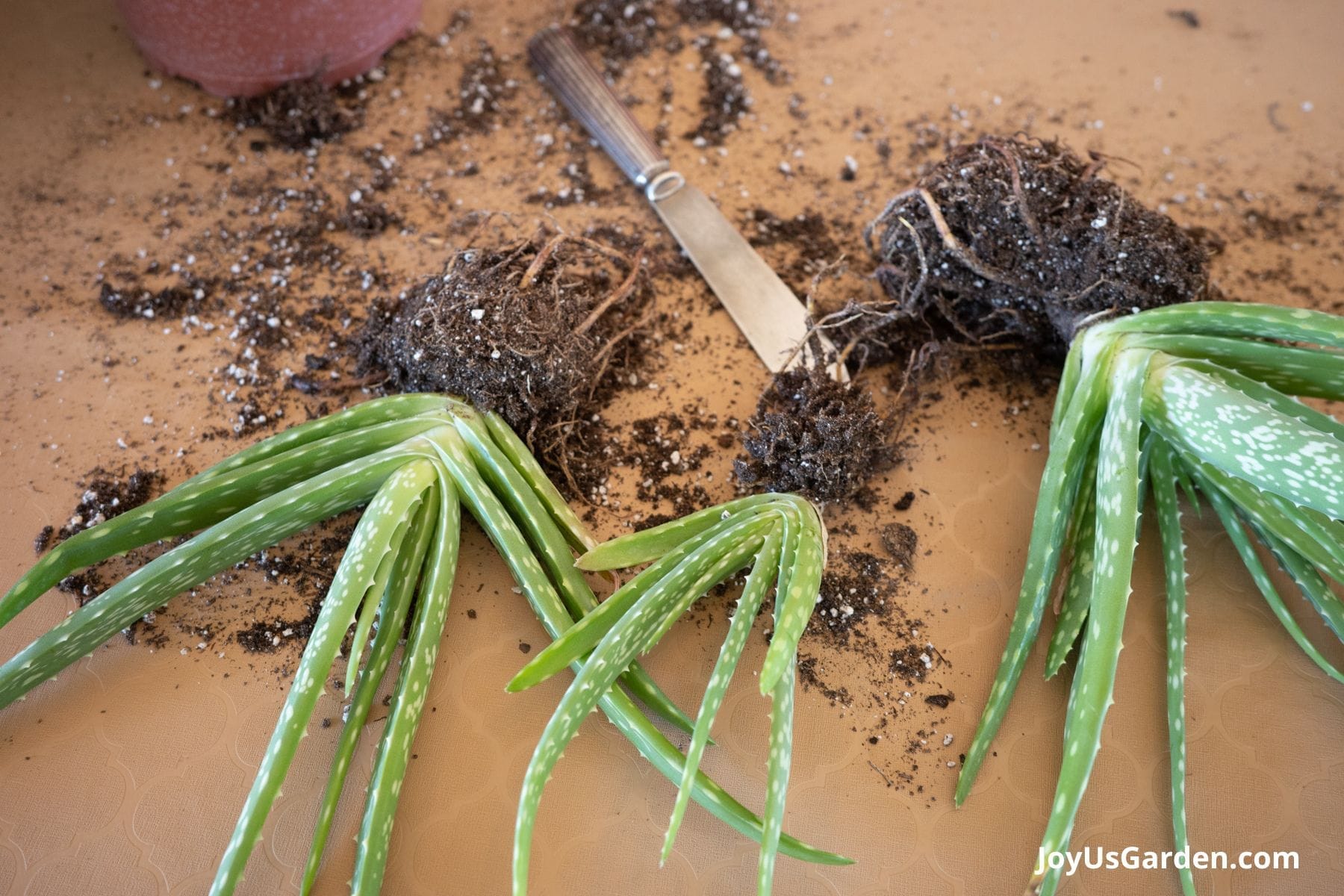
Types Of Pots For Aloe Vera Plants
These popular plants aren’t fussy regarding pot material. I’ve planted them in many different types over the years, including plastic, clay, and ceramic pots. I particularly love the look of Aloe Vera in a terracotta pot.
You can directly plant it into a decorative pot or a plastic grow pot to be set inside a decorative pot. I recommend the latter because as the plant grows and needs a new pot, it’s easier to get out of a plastic one by pressing on the sides.
Make sure whatever new pot you use has plenty of drainage holes on the bottom (my aloe’s new pot has about 20) so the excess water can easily flow out.
Our No-Nonsense Indoor Plant Care Guide
Even if you’re a serial plant killer, this ebook aims to turn your brown thumb green! Get a multitude of practical plant care tips. Some of the 33 plants included in this book are Pothos, Agalonema, Spider Plant, Kentia Palm, a variety of Dracaenas, some succulents, plus many more.
Soil For Aloe Vera
Aloe vera is a succulent plant that likes dry conditions. It stores water in its fleshy leaves and roots, so the potting mix needs to yield good drainage to prevent root rot. You can see the succulent soil mix I use in the image below.
Regular potting soil holds too much water, meaning there’s a greater chance the plant’s roots will stay too wet. A succulent and cactus mix is best because it’s gritty( or chunky) and provides the excellent drainage needed.
Succulents don’t like wet soil, especially those that are growing indoors. Aloe vera likes its soil to dry out between waterings.
Here’s Succulent & Cactus Mix Recipe I use. If you don’t want to make your own, you can buy some online: Dr. Earth, EB Stone, Bonsai Jack, and Tank’s. Other popular choices are Cactus Cult and Hoffman’s.
This post on Succulent Soil Mix will give you more details.
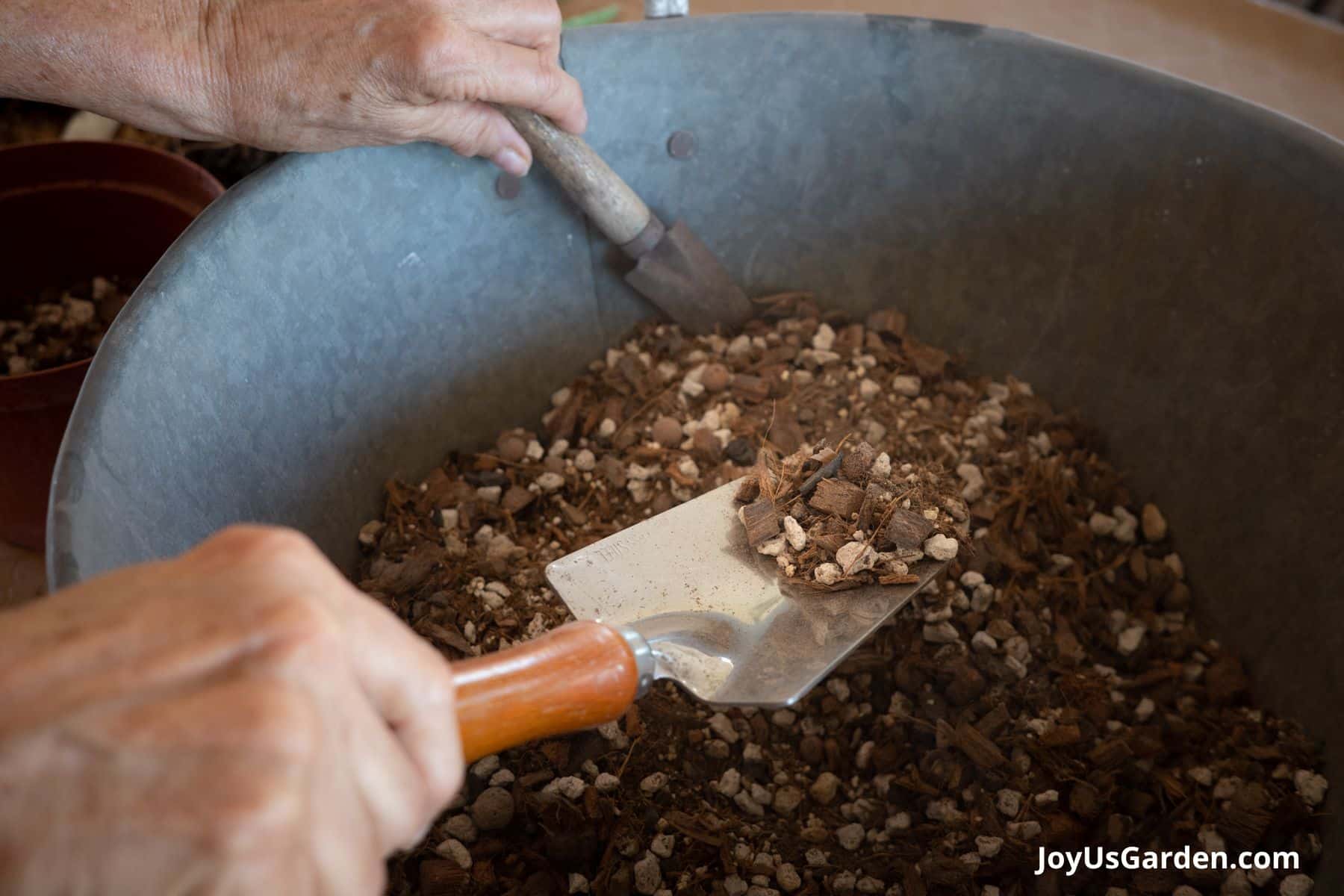
How To Divide Aloe Vera
If you’re interested in dividing or separating an Aloe vera, it’s best to watch the video below. I start the process at the 1:10 minute mark.
This post (with video) details removing Aloe vera pups from the mother plant.
Steps To Repot Aloe Vera
This is a simple process. The roots are tough, so you don’t have to go at it with white gloves. These are the steps I take:
Water the plant 3 to 5 days before repotting. You don’t want to repot a dry, stressed plant, but you don’t want it sopping wet.
Gather your materials. This makes the process easier because everything is right in front of you. I’ve just ordered this repotting mat to keep my workspace cleaner, whether I’m repotting at my kitchen island or on my work table outdoors. It comes in a smaller size, too.
How to remove an aloe vera plant from the pot: The best way to get it out depends on how tight the root system is. As they age and if they’re tight in their pots, the root system gets quite interwoven.
You may get it out by pressing on the sides of the pot to loosen the rootball. Or, you may have to run a knife around the pot to get the root ball out.
Put the necessary amount of potting mix in the bottom of the pot so that the top of the rootball is slightly above the rim of the pot. I always plant succulents this way because their weight will pull them down a bit in the light mix after a few waterings.
Fill in the sides with the mix. As I go, I add a few handfuls of amendments (a combo of compost and worm compost).
That’s it – you’re done!
Have questions about Aloe vera? We answer your Questions About Growing Aloe Vera here.
Care After Repotting Aloe Vera
The aftercare is easy. Put your Aloe back in the bright location it was growing in. Let the mix stay dry for 5 to 7 days, and then resume your regular watering schedule.
Mine grows in indirect sunlight right near a south-facing window. I water it every 10 to 14 days in summer and every 14 to 21 days in winter.
They don’t like consistently moist soil, so let yours dry out between waterings.
Here’s a general Aloe Vera Care Guide and this one on Growing Aloe Vera As A Houseplant.
Aloe Vera Repotting Video Guide

Repotting Aloe Vera FAQs
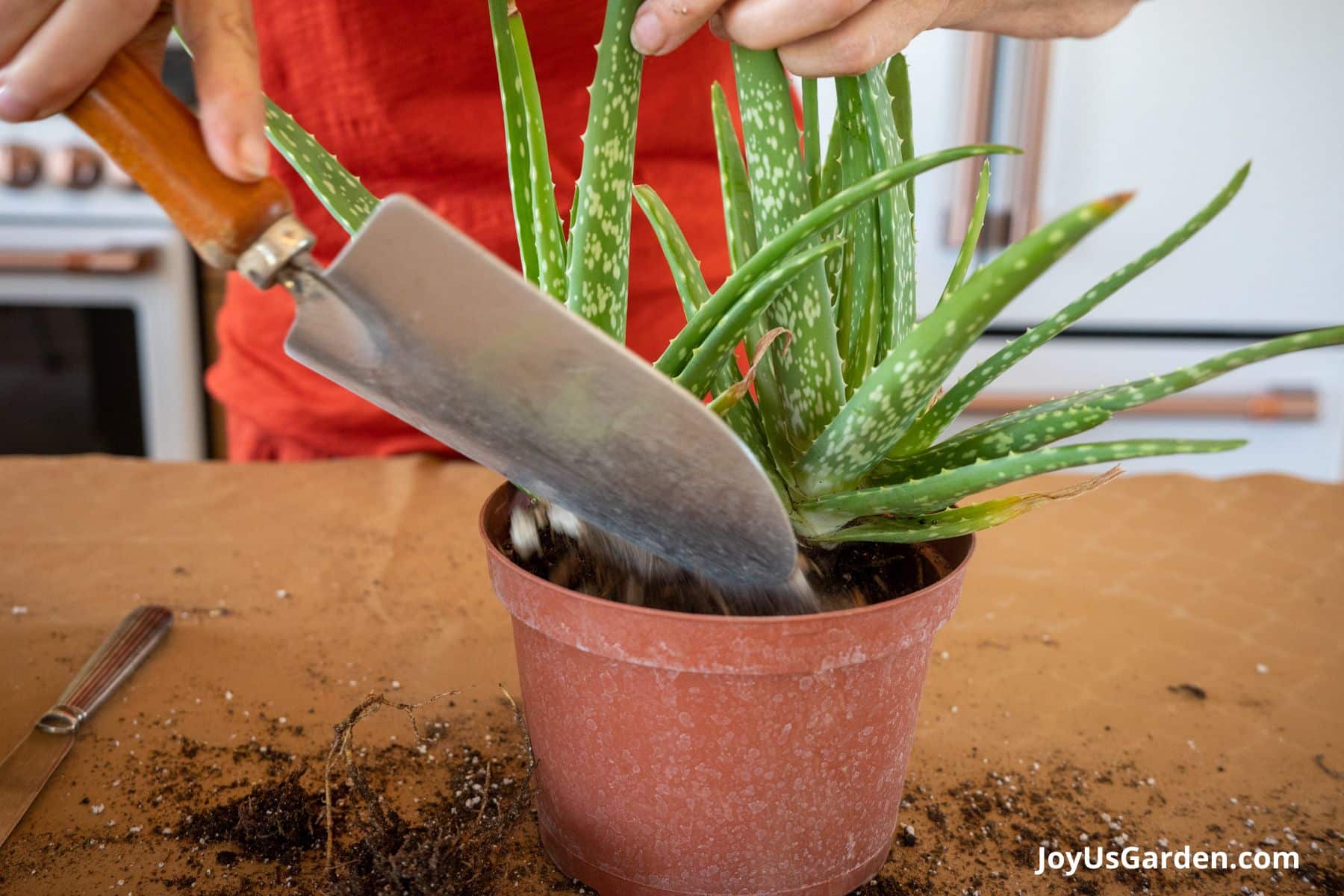
In conclusion, Repotting your aloe vera plant is a simple and rewarding task that ensures its health and longevity. Following the steps outlined in this article, you can provide your succulent friend with a fresh start and room to grow. Remember to choose the right pot, use well-draining soil like a succulent mix, and give your plant time to adjust after repotting.

